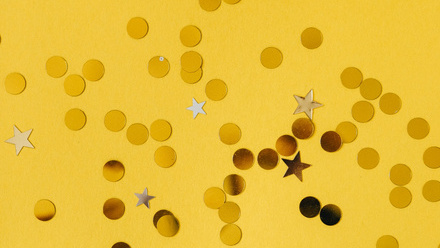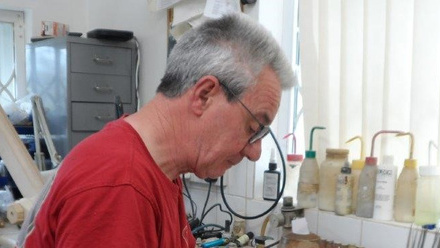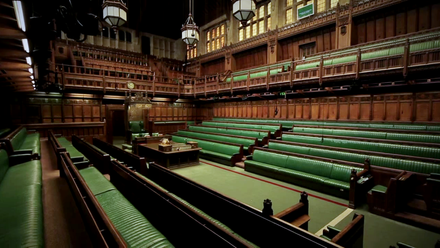Conservators in Quarantine
The 21st century seems to have become possibly one of the most challenging eras for the world. Economic crises, wars, political conflicts and natural disasters gradually hit many aspects of global society, from health to social security, education, science, arts and culture.
The year 2020 especially brought the strangest challenge of all, which neither we nor our parents have experienced. Covid-19 (Coronavirus) was declared a pandemic by the World Health Organization (WHO) in March 2020. Its consequences on our daily lives and livelihoods (in this case heritage conservation) was and still is immense.
Working in heritage conservation requires patience, passion for history and material culture, and extraordinary knowledge and skills that are necessary to preserve the past for the future. Practical conservators mainly work with material culture as part of various projects, and that ‘one to one’ interaction with objects is their livelihood.
When the national lockdown started in the UK in March 2020, conservators who work for the national museums and institutions continued to work from home as much as they were able to, until they were placed on the government’s ‘Coronavirus Job Retention Scheme (CJRS)’.nobody really talked about the wellbeing of the heritage professionalsDuring this time, leading heritage institutions such as the International Council of Museums (ICOM), the United Nations Educational, Scientific and Cultural Organization (UNESCO), the Network of European Museum Organisations (NEMO) and the Museum Association produced several analyses and reports in regards to the future of museology.
These reports discussed financial arrangements, management of buildings and collections, staff and visitors, as well as digital applications for the ‘new normal’, and were shared with colleagues and the general public on online platforms (Ertürk 2020, 6).
Nevertheless, nobody really talked about the wellbeing of the heritage professionals in detail, whether they work for the government, for private institutions or as freelancers, who are all fundamental to the survival of the heritage field.
Working from home
Unfortunately the mishandling of Covid-19 on a global scale caused museums and heritage institutions to start taking precautions quite late in the process, which resulted in an increased level of anxiety for many colleagues. In fact, people had to make their own decisions whether to go to work or not. It was towards the end of March and suddenly most of us started working from home.
Working from home (WFH) may have seemed convenient for many of us, but some of us severely struggled, particularly those who live on their own, and who are parents. Parents have had to juggle home schooling together with all the housework, plus doing the work hours each day, trying to fit around a ‘lockdown’ lifestyle.we have not known a life without work, so it took us some (difficult) time to become adjusted to the ‘new normal’ and start looking into our lives from other perspectives.Being on furlough
Stress levels have increased daily and some conservators felt that they did not have enough work to justify their ‘WFH’. Soon enough, many institutions decided to make use of the government’s furlough scheme to pay their staff and this was the beginning of the strangest, the most difficult and at the same time, the most relaxing year which we have experienced so far.
At the beginning I imagine that some of us felt a little confused and lost as I did, since we have not heard the word ‘furlough’ before and could not understand what it really meant. Some of us did not have children to keep busy with, and we have not known a life without work, so it took us some (difficult) time to become adjusted to the ‘new normal’ and start looking into our lives from other perspectives.
The conservators I spoke with shared similar feelings of a fear of uncertainty in the future; difficulty focusing only on the house and children having suddenly become housebound; being away from friends and family; worrying about money, career, skills loss and the future job securities. These worries have affected everyone from students, emerging or mid-career conservators to managers and newly retired colleagues.
Some of us also worried about our health and our loved ones. It was a real challenge to overcome these feelings when there was no certainty in the unforeseen future. For non-furloughed colleagues, getting used to home working, continuous online meetings and creating a completely new work environment have also added to the stress.
One of my colleagues from the Icon Leadership Launchpad Mastermind Programme (2019/20), Rebecca Ellison, summarized what we all felt in a lovely acrostic poem:
Furlough Leave
- Fear that I will have forgotten what I’m meant to be doing when I return to work;
- Unsettled by the enormous level of change in my organisation;
- Reflecting on who I am, where I am in my career and where I want to get to;
- Lonely and feeling isolated; missing seeing my work colleagues;
- Out of touch, despite the best efforts of those around me to prevent this;
- Uncertainty about the future and the battle of living with ambiguity;
- Guilty that I am not allowed to work, whilst some of my colleagues still working are struggling with too many things to do;
- House sorted – all the little jobs I’ve never had the time to do are getting done.
- Learning new skills and becoming confident with social media to enhance my professional profile;
- Exercising to keep mentally and physically strong;
- Apathy and finding the inner strength to beat this;
- Valuing the unexpected opportunity to spend so much time with my immediate family;
- Everlasting memories. Emotional times.
May Covid-19 make people understand our real value…A new perspective
Nevertheless we all have seen a different side of life during the lockdown. We stopped for a moment and realised how much we have been running around with deadlines, trying to finish important projects with limited resources and low wages, dealing with difficult situations and with all the changes at our work places, keeping in touch with the latest and promoting our profession, all while balancing a personal life.
I believe that heritage conservation is firstly about material culture, how we connect with it and how we study, preserve and present it. It seems to me that within a year's worth of chaos and countless information, we forgot about the real reason why we are in this field and why we continue.
May Covid-19 bring us conservators more excitement and passion in what we do, more calmness and better planning in our daily lives and at work, and better support from our institutions, leaders and managers. May Covid-19 make people understand our real value…
I would like to say a heart filled thanks to the Icon Leadership Launchpad Mastermind November 2019 Cohort members, Icon and my colleagues at the British Museum for always being there and keeping me sane.
Ertürk, N. (2020). Müzeler Karantinada!.Turkish Studies, 15(4), 389-402.
---
Image: Creative Commons



